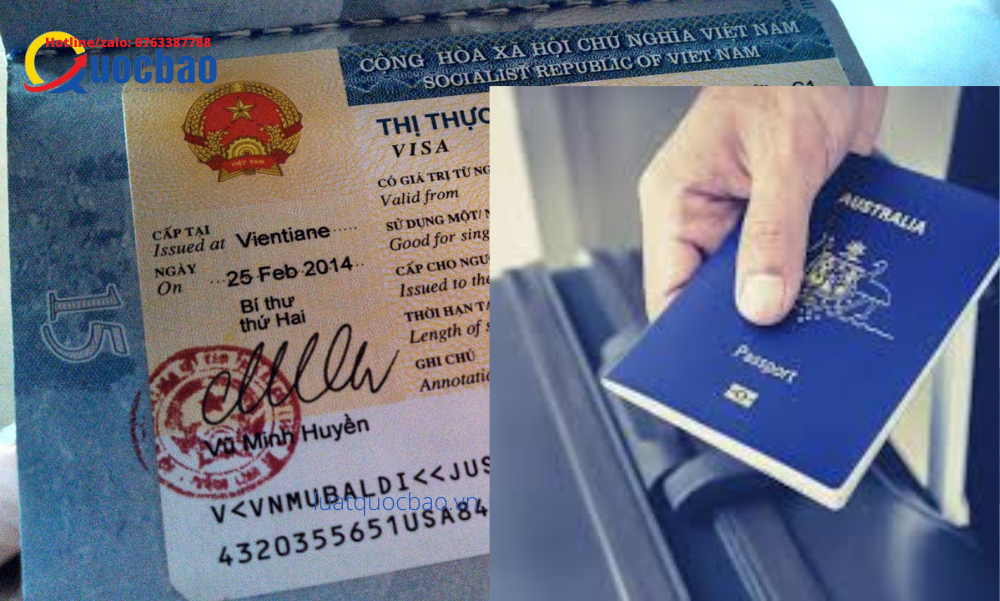4. Who has the right to establish a foreign invested company?
Persons with the right to establish foreign-invested companies are listed and clearly defined in the law below:
The current Enterprise Law stipulates: Right to establish, contribute capital, buy shares, purchase capital contributions and manage enterprises.
1. Organizations and individuals have the right to establish and manage enterprises in Vietnam according to the provisions of this Law, except for the cases specified in Clause 2 of this Article.
2. The following organizations and individuals do not have the right to establish and manage businesses in Vietnam:
a) State agencies and people’s armed forces units use state assets to establish business enterprises to make private profits for their agencies and units.
b) Cadres, civil servants and public employees according to the provisions of law on cadres, civil servants and public employees
c) Officers, non-commissioned officers, professional soldiers, workers, and defense officials in agencies and units of the People’s Army; Professional officers and non-commissioned officers in agencies and units of the Vietnam People’s Police, except those appointed as authorized representatives to manage the State’s capital contribution in enterprises
d) Leaders and professional managers in state-owned enterprises, except those appointed as authorized representatives to manage the State’s capital contribution in other enterprises
d) Minors; people with limited civil act capacity or lost civil act capacity; organizations without legal status
e) People who are being prosecuted for criminal liability, serving prison sentences, administrative handling decisions at compulsory detoxification facilities, compulsory education establishments or are banned from practicing business or holding positions. perform certain tasks or jobs related to business according to the Court’s decision; Other cases as prescribed by law on bankruptcy and anti-corruption.
If requested by the Business Registration Authority, the person registering to establish a business must submit a criminal record card to the Business Registration Authority.
3. Organizations and individuals have the right to contribute capital, purchase shares, and purchase capital contributions to joint stock companies, limited liability companies, and partnerships according to the provisions of this Law, except for the following cases:
a) State agencies and people’s armed forces units use state assets to contribute capital to enterprises to gain private profits for their agencies and units.
b) Subjects who are not allowed to contribute capital to the enterprise according to the provisions of law on officials and civil servants.
4. Gaining private profits for your agency or unit according to Point a, Clause 2 and Point a, Clause 3 of this Article is the use of income in any form obtained from business activities, capital contributions, share purchases, Purchase capital contributions for one of the following purposes:
a) Divided in any form to some or all of the people specified in Points b and c, Clause 2 of this Article
b) Adding to the operating budget of agencies and unit’s contrary to the provisions of law on state budget
c) Establish a fund or add to it to serve the private interests of agencies and units.
5. Forms of establishing foreign-invested enterprises/companies
Establish a foreign-invested company in the form of investors contributing capital from the beginning.
Accordingly, foreign investors will contribute capital right from the beginning of establishing a company in Vietnam. Accordingly, foreign investors’ capital contribution, depending on the field of activity, can range from 1% to 100% of the company’s charter capital.
Establishing a company with foreign investment capital in the form of capital contribution and share purchase.
With this form, foreign investors will contribute capital to a Vietnamese company that already has a Business Registration Certificate. Foreign investors, depending on the field of activity, can contribute capital from 1% to 100% of capital into Vietnamese companies. Foreign investors will carry out procedures for purchasing capital contributions and shares of Vietnamese companies. After that, the Vietnamese company became a foreign-invested company.
6. Types of businesses
** Limited liability company with two or more members
A limited liability company with two or more members is an enterprise with from 02 to 50 members who are organizations and individuals. Members are responsible for the debts and other property obligations of the enterprise within the amount of capital contributed to the enterprise, except in the following cases:
In case there are members who have not contributed capital or have not contributed the full amount of capital as committed, the company must register to change charter capital, with the proportion of members’ capital contribution equal to the amount of capital contributed within 30 days from the date of registration. The last day to contribute the full capital contribution according to regulations (Capital contribution period is 90 days from the date of issuance of the Business Registration Certificate). Members who have not contributed capital or have not contributed the full amount of capital as committed must be responsible in proportion to the committed capital contribution ratio for the company’s financial obligations arising in the period before the date of company registration. Sign changes to charter capital and capital contribution ratio of members.
Members’ capital contributions can only be transferred according to the following regulations:
Buyback of capital contribution: A company member has the right to request the company to buy back his or her capital contribution if that member has voted against the resolution or decision of the Board of Members on the following issues:
Amending and supplementing contents in the Company’s Charter related to the rights and obligations of members and the Board of Members.
Reorganize the company.
Other cases as prescribed in the Company’s Charter.
Transfer of capital contribution: Company members have the right to transfer capital contribution according to the following regulations:
Offer to sell that capital contribution to the remaining members in proportion to their capital contribution in the company with the same offering conditions.
Transfer with the same offering conditions for the remaining members specified in Point a of this Clause to non-members if the remaining members of the company do not buy or do not buy all within 30 days from the date of purchase. from the date of offering.
In addition, a member’s capital contribution can be handled in some special cases such as inheritance, donation, debt repayment, member being detained or temporarily detained…
A limited liability company with two or more members has legal status from the date of issuance of the Business Registration Certificate.
A limited liability company with two or more members is not allowed to issue shares, except to convert into a joint stock company.
Limited liability companies with two or more members may issue bonds according to the provisions of this Law and other relevant laws; The issuance of individual bonds must comply with the provisions of law.
** One-member limited liability company
A single-member limited liability company is an enterprise owned by an organization or individual (hereinafter referred to as the company owner). The company owner is responsible for the company’s debts and other property obligations within the company’s charter capital.
A one-member limited liability company has legal status from the date of issuance of the Business Registration Certificate.
A single-member limited liability company is not allowed to issue shares, except to convert into a joint stock company.
A one-member limited liability company may issue bonds according to the provisions of this Law and other relevant laws, issuance of individual bonds according to the provisions of law.
The charter capital of a one-member limited liability company when registering to establish a business is the total value of assets committed to contribute by the company owner and recorded in the company charter.
The company owner must contribute capital to the company with sufficient and correct types of assets as committed when registering to establish a business within 90 days from the date of issuance of the Business Registration Certificate, excluding operation time. Transfer and import capital contribution assets, carry out administrative procedures to transfer asset ownership. During this period, the company owner has rights and obligations corresponding to the committed capital contribution.
** Joint stock company
A joint stock company is an enterprise in which:
Charter capital is divided into equal parts called shares.
Shareholders can be organizations or individuals; The minimum number of shareholders is 03 and there is no limit to the maximum number.
Shareholders are only responsible for the debts and other property obligations of the enterprise within the amount of capital contributed to the enterprise.
Shareholders have the right to freely transfer their shares to others, except in the following cases:
Within 03 years from the date the company is granted the Business Registration Certificate, common shares of founding shareholders are freely transferable to other founding shareholders and can only be transferred to persons who are not founding shareholders if approved by the General Meeting of Shareholders. In this case, the founding shareholders intending to transfer common shares do not have the right to vote on the transfer of those shares. (Clause 3, Article 120 of the Enterprise Law 2020)
Shares are freely transferable, except for the cases specified in Clause 3, Article 120 of the 2020 Enterprise Law and the Company Charter has regulations restricting the transfer of shares. In case the company charter has restrictions on the transfer of shares, these regulations are only effective when clearly stated in the shares of the corresponding shares. (Clause 1, Article 127 of the Enterprise Law 2020)
A joint stock company has legal status from the date of issuance of the Business Registration Certificate.
A joint stock company has the right to issue shares, bonds and other securities of the company.
** Partnerships
A partnership is an enterprise in which:
There must be at least 02 members who are joint owners of the company, doing business together under a common name (hereinafter referred to as partnership members). In addition to general partners, the company may have additional capital contributing members.
General partners must be individuals, responsible with all their assets for the company’s obligations.
Capital contributing members are organizations and individuals and are only responsible for the company’s debts within the amount of capital committed to contributing to the company.
A partnership company has legal status from the date of issuance of the Business Registration Certificate.
Partnership companies are not allowed to issue any type of securities.
Partnership members and capital contributing members must contribute the committed capital amount in full and on time.
A general partner who fails to contribute the committed capital in full and on time, causing damage to the company, must be responsible for compensating the company for damages.
In case a capital contributing member fails to contribute the committed capital amount in full and on time, the not yet fully contributed capital is considered that member’s debt to the company; In this case, the relevant capital contributing member may be expelled from the company according to the decision of the Board of Members.
** Private enterprise
A private enterprise is a business owned by an individual who is solely responsible for all activities of the business with his or her entire assets.
Private enterprises are not allowed to issue any type of securities.
Each individual is only entitled to establish one private enterprise. The owner of a private enterprise cannot simultaneously be the owner of a business household or a general partner of a partnership.
Private enterprises are not entitled to contribute capital to establish or purchase shares or capital contributions in partnerships, limited liability companies or joint stock companies.
The investment capital of a private business owner is registered by the business owner himself. Private enterprise owners are obliged to accurately register the total investment capital, clearly stating the capital amount in Vietnam Dong, freely convertible foreign currencies, gold and other assets; For capital in other assets, the type of asset, quantity and remaining value of each type of asset must also be clearly stated.
All capital and assets, including loans and leased assets, used in the enterprise’s business activities must be fully recorded in the enterprise’s accounting books and financial reports according to the provisions of law.
7. Documents for establishing a foreign invested company
For foreign investors to establish economic organizations
** Application for Investment Certificate
For projects subject to investment policy decision: The investor submits the Investment Policy Approval Document.
The Department of Planning and Investment issues the Investment Registration Certificate to the investor within 05 working days from the date of receiving the written decision on investment policy.
For projects not subject to investment policy decision: Investors need to prepare the following documents:
Written request for investment project implementation (According to form).
Copy of identity card, ID card or passport for individual investors; Copy of Certificate of Establishment or other equivalent document certifying legal status for institutional investors.
Investment project proposal includes the following contents: Investor implementing the project, investment objectives, investment scale, investment capital and capital mobilization plan, location, term, investment progress , labor needs, proposals for investment incentives, assessment of impact and socio-economic efficiency of the project; For investment projects that have been put into operation, the investor submits a report on the implementation of the investment project from the time of implementation to the time of requesting an Investment Registration Certificate instead of the project proposal. Investment project (According to form).
Copy of one of the following documents: Financial statements of the investor for the last 2 years; commitment to financial support from the parent company; commitment to financial support from financial institutions; guarantee of the investor’s financial capacity; Documents explaining the investor’s financial capacity.
Propose land use needs for projects requesting the state to allocate land, lease land, or allow land use purpose change; In case the project does not request the State to allocate land, lease land, or allow change of land use purpose, submit a copy of the location lease agreement or other documents certifying that the investor has the right to use the location for implementation. current investment project.
Explanation on technology use for projects using technology on the List of technologies restricted from transfer according to the provisions of law on technology transfer (Point b, Clause 1, Article 32 of the Investment Law 2014) includes Contents: Technology name, technology origin, technology process diagram; Main technical parameters, usage status of main machinery, equipment and technological lines.
BCC contract for investment projects in the form of BCC contract.
** Application for Business Registration Certificate
Based on the regulations in Decree 01/2021 on business registration, depending on the type of business, company documents that need to be prepared include:
Application for establishment of a business.
Draft company charter depending on the type of business (Single member LLC; LLC with two or more members; Joint stock company) according to the Enterprise Law 2020
List of members (For LLCs with two or more members and List of founding shareholders for Joint Stock Companies);
Certified copy of personal identification documents (ID card/CCCD/Passport) of the company’s legal representative, the owner of the one-member limited liability company, and the members of the second limited liability company members or more, founding shareholders of a Joint Stock Company, authorized representatives.
Investment registration certificate if capital contributing members/founding shareholders are foreigners or foreign companies.
Business registration certificate, power of attorney for the representative to be named on the capital contribution/shares of the capital contributing organization (if any)

















